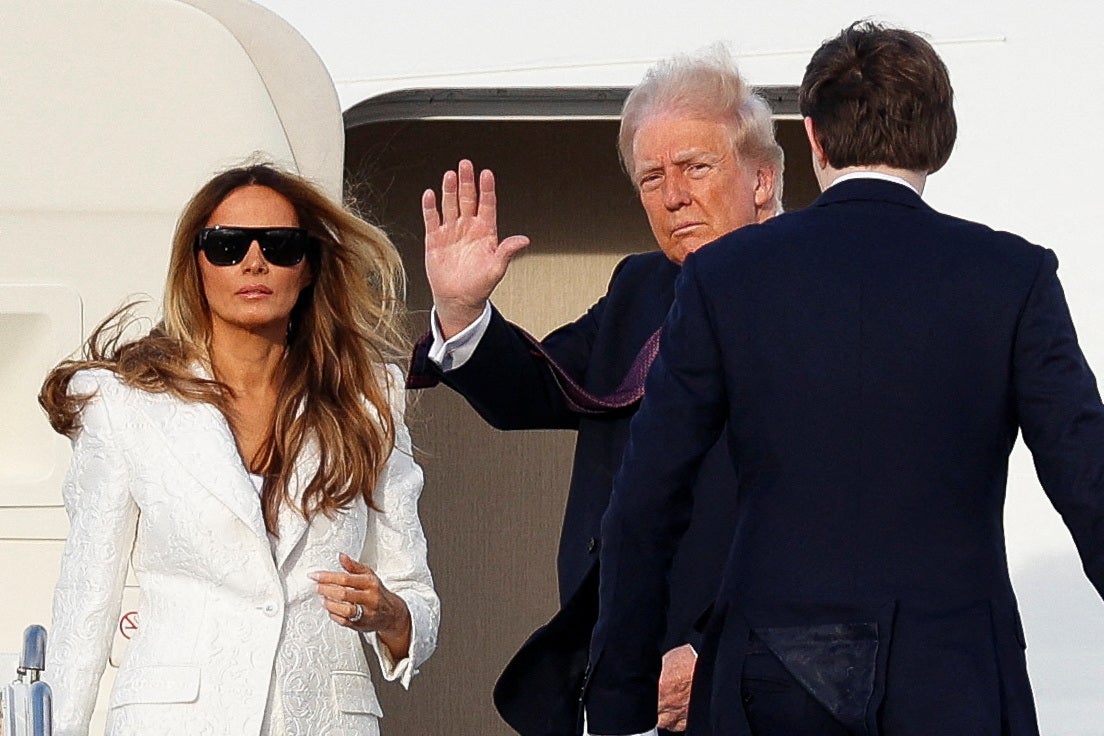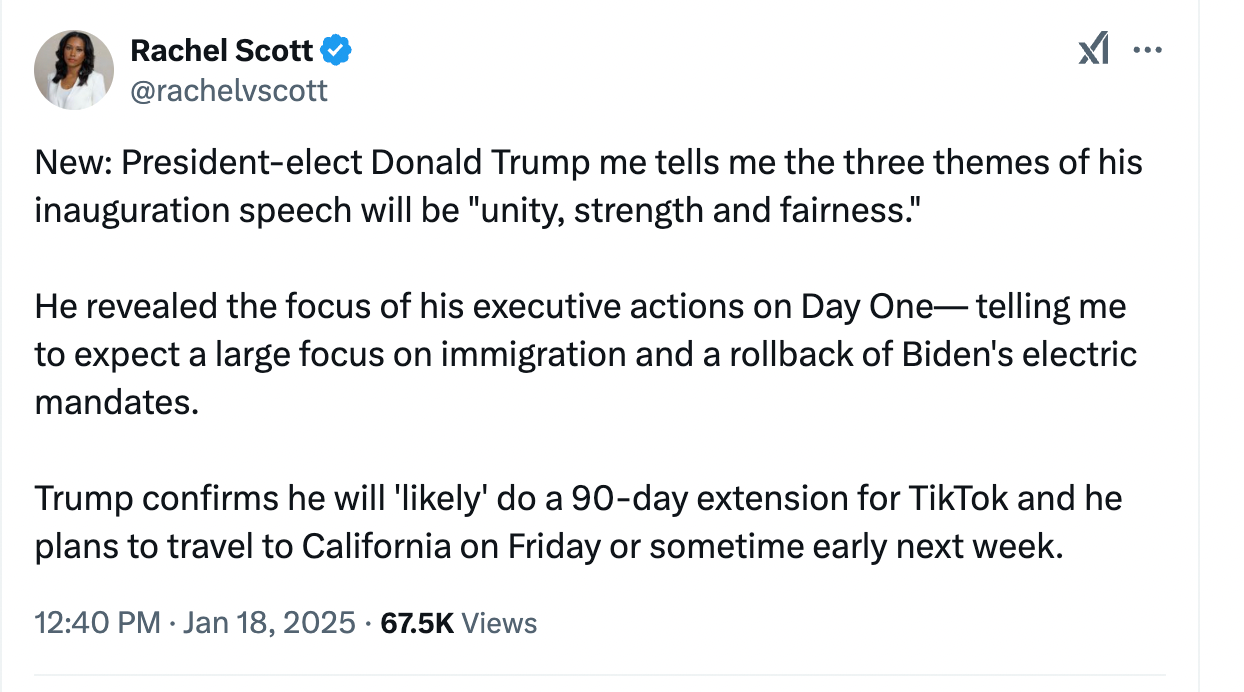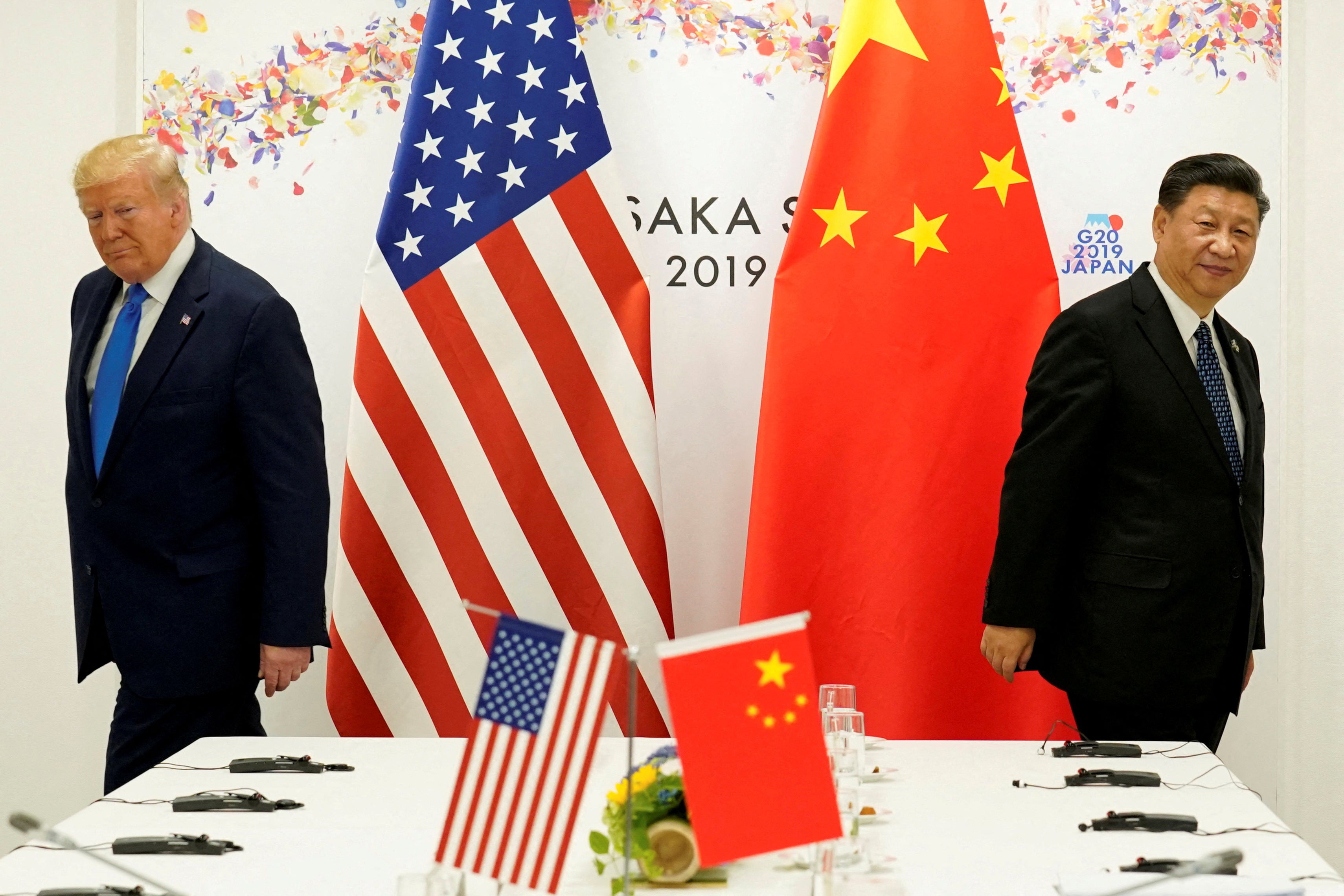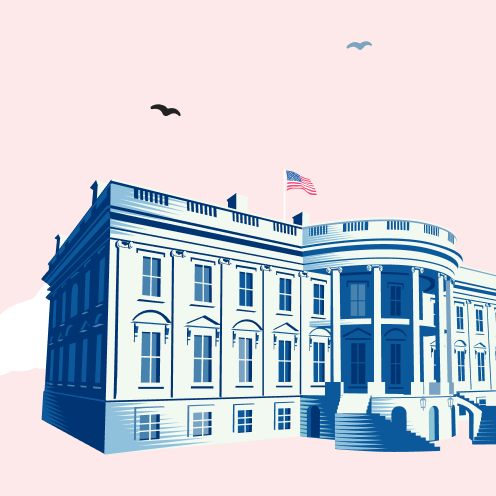Trump reveals the three themes of his inauguration speech and hints at two early trips

Donald Trump has reportedly said the three main themes of his inaugural speech on Monday will be “unity, strength and fairness.”
The president-elect, who will be sworn in for his second term at the Capitol in Washington, D.C., has also said that he will sign around 100 executive actions on his first day, with the focus on immigration.
He has previously promised action on at least 59 topics on his first day in office, including “the largest deportation” in US history, ending the war in Ukraine and pardoning the January 6 rioters. The new administration’s deportation efforts are expected to begin in Chicago, with some 200 ICE agents targeting scores of migrants, including those with low-level criminal histories that would’ve been deemed low priority by the Biden administration.

Once he has taken office again, Trump is reportedly teasing an early visit to California, where wildfires in Los Angeles have killed more than 20 people, caused thousands to evacuate and caused millions in damage.
Reports suggest he could also be planning a trip to China ahead of what many expect to be a gruelling trade war between the world’s two biggest economies. Trump has repeatedly threatened tariffs of up to 60 percent against Beijing, which economists predict will hurt both countries’ economies and, consequently, the wider world economy.
On Saturday afternoon, ABC News senior political correspondent Rachel Scott tweeted: “President-elect Donald Trump me tells me the three themes of his inauguration speech will be “unity, strength and fairness.”
“He revealed the focus of his executive actions on Day One— telling me to expect a large focus on immigration and a rollback of Biden’s electric mandates.”
She added: “Trump confirms he will ‘likely’ do a 90-day extension for TikTok and he plans to travel to California on Friday or sometime early next week.”

The reported themes of his speech would provide a stark contrast with his inaugural address on January 20, 2017, when he was sworn in for his first term.
That speech, which came to be known as “American Carnage,” painted a dystopian vision of the US as a land of economic decline, rampant crime and political corruption.
In it, Trump said: “Politicians prospered — but the jobs left, and the factories closed. The establishment protected itself, but not the citizens of our country. Their victories have not been your victories; their triumphs have not been your triumphs; and while they celebrated in our nation’s capital, there was little to celebrate for struggling families all across our land. … The forgotten men and women of our country will be forgotten no longer.”
Elsewhere in the speech he said: “Mothers and children trapped in poverty in our inner cities; rusted-out factories scattered like tombstones across the landscape of our nation; an education system, flush with cash, but which leaves our young and beautiful students deprived of knowledge; and the crime and gangs and drugs that have stolen too many lives and robbed our country of so much unrealized potential. This American carnage stops right here and stops right now.”
The Wall Street Journal reports that Trump has told advisers he wants to make a trip to China, possibly during his first 100 days in office. It would be his second trip there following his first in 2017.

Trump’s relations with Chinese President Xi Jinping have been mixed, going from an apparently burgeoning friendship in the first years of his first term, to attacking him over Beijing’s handling of the Covid pandemic, which started in the Chinese city of Wuhan and which Trump repeatedly referred to as the “China virus” or “Kung Flu.”
The two leaders spoke by telephone on Friday. Xi had previously been invited to Monday’s inauguration but is sending his vice-president instead.




:max_bytes(150000):strip_icc()/charles-dolan-cable-event2-122924-63bec00692fe48ea98155fbf8eb47419.jpg?w=390&resize=390,220&ssl=1)
